Back in the spring, we told you about plans from OCF Holdings to replace a gross old warehouse with twenty-two new homes at the corner of 20th & Wharton. The project went to the ZBA back in May, and a final ruling still hasn't been made.
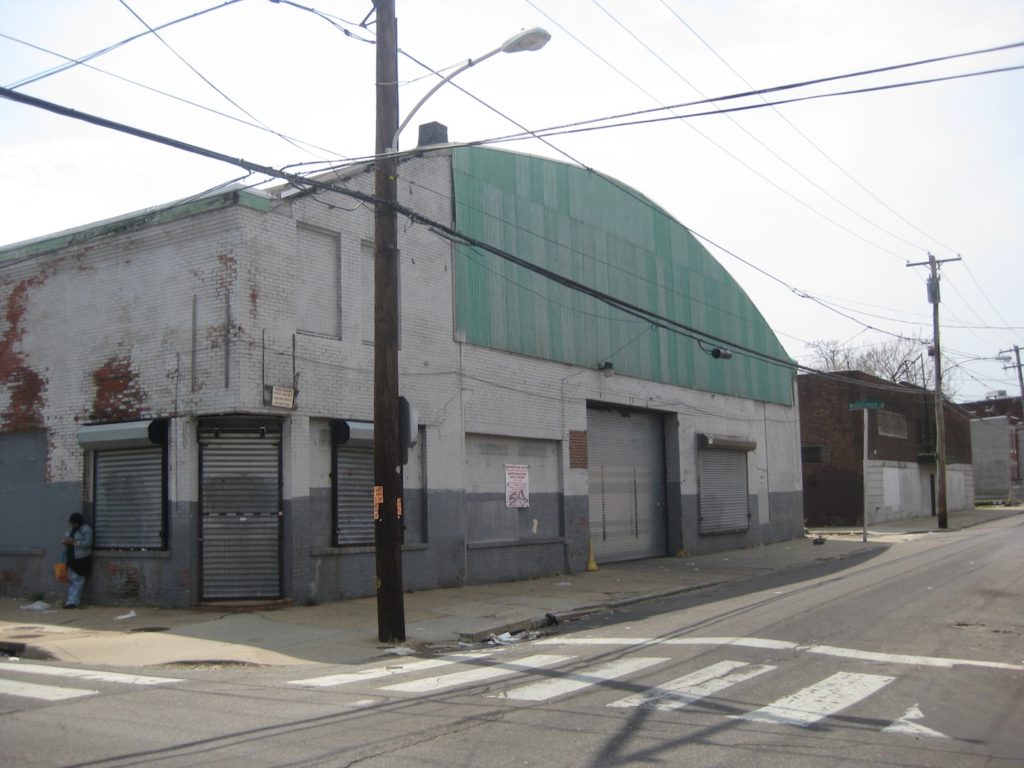
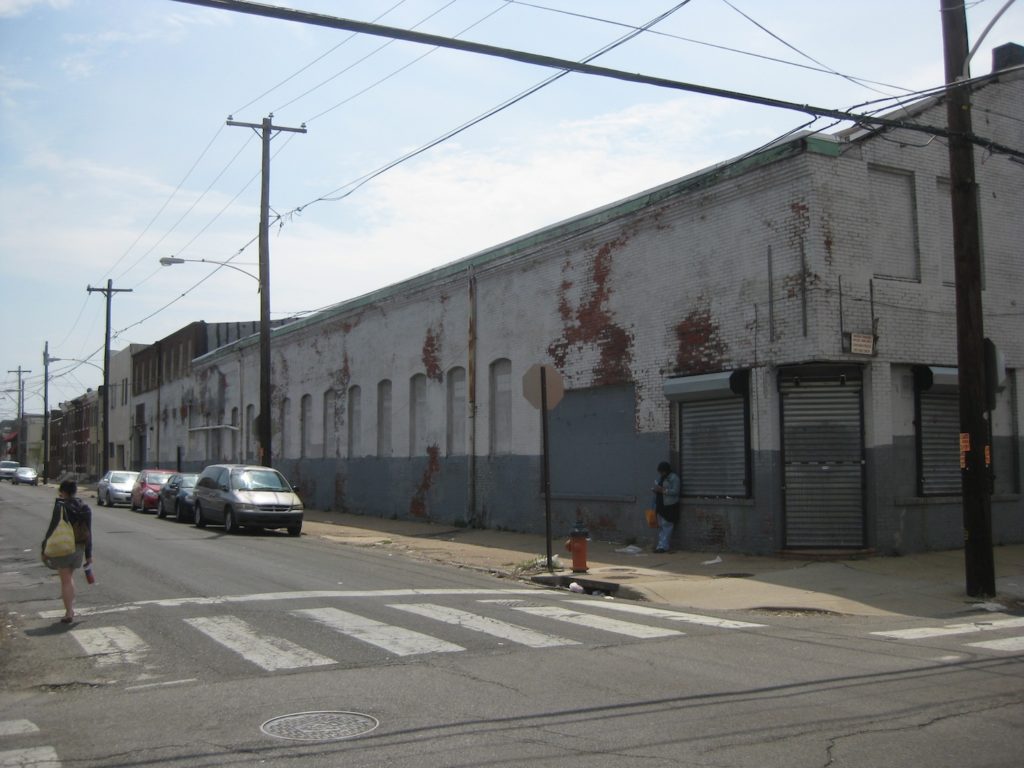
At the ZBA hearing, there were dozens of people present in support of the project, and three people in opposition. Community group South Philadelphia HOMES offered several objections to the project, including the lack of affordable housing (which we won't address here since OCF Holdings isn't an affordable housing developer) and an absence of parking. The group asked the developer to revise the project to eleven homes, each with a rear-access parking port on Woodstock Street. The developer didn't think that such a plan would be feasible, but hired a Economist Kevin Gillen to perform a study to confirm those suspicions.
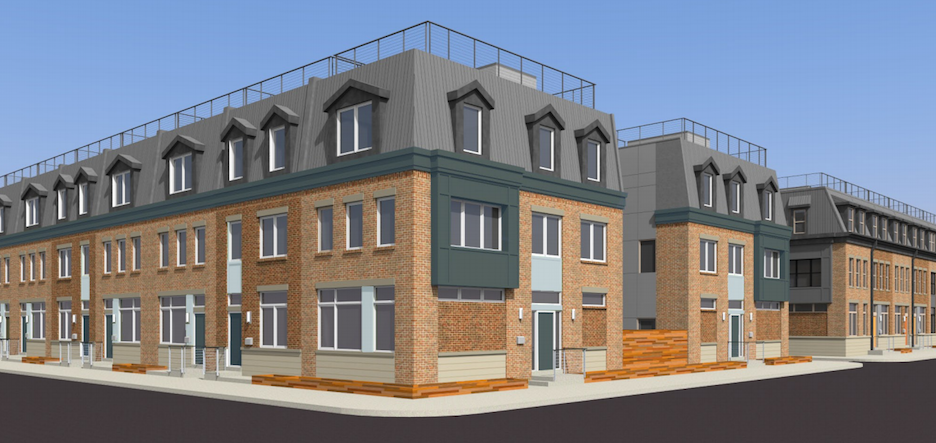
If you're not a math or development nerd, might we suggest skipping the next couple of paragraphs, as they're gonna be a little boring yet extremely enlightening.
Looking at the project, Gillen made several assumptions:
Acquisition cost: $750K (actual purchase price was much lower, but the developer assumed hundreds of thousands of dollars in liens)
Demolition cost: $250K
Architecture/permitting: $250K
Construction cost/home without parking: $225K
Using those numbers, there's a total project cost of $6.8M and a total project revenue of $7.7M, assuming a sale price of $350K per home. That's roughly a 13% return over a two-year horizon for the entire project, or 6.41% per year. That's nothing to write home about considering the risk, and pretty much represents the bare minimum return needed to make the project work.
Using a hedonic regression model and inputting area sales over the course of a year, Gillen estimated that the appropriate sale price for homes with rear-access parking at this location would be just under $400K. Using the same assumptions, except increasing the construction cost per home to $250K, the total project cost tumbles to $4.35M (remember it's only eleven homes) and the revenue becomes $4.38M.
Though the profit margin per home would be higher and the construction costs considerably lower with the construction of only eleven homes, Gillen's analysis shows a return of 0.64% if the developer builds this iteration of the project. If one or two things go wrong in the course of construction, that profit margin quickly becomes negative. Those numbers will send any potential lender or investor running for the hills. Or the bond market.
From looking at the economics, the development of twenty-two homes for this site works, and the development of eleven homes with rear-access parking simply does not. But what if the developers opted for a blended model, with some homes having parking in the rear? Gillen models this out too:
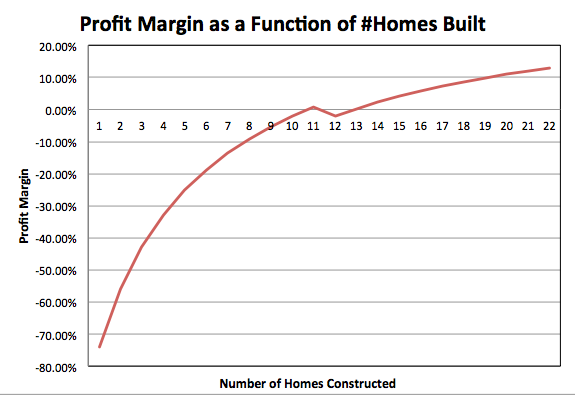
As we mentioned above, the construction of twenty-two homes provides the bare minimum return to make the project work. Losing even one home would reduce the expected return on the project to an extent that financing would be impossible to come by. Rock, meet hard place.
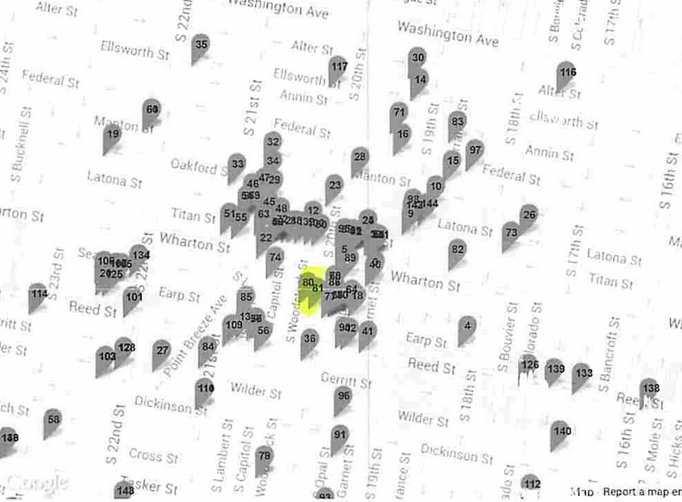
Separately, a petition has gone around that's been signed by 149 people including a staggering number of near neighbors to the project. The people whose parking situation would theoretically be most impacted by the project seem to have no objections to it. Maybe they're just tired of looking at an old and unattractive warehouse that's currently being used to store hardwood flooring. And it's probably worth noting that the redevelopment of the building would put over twenty spots back on the street as a result of eliminating loading docks and making Woodstock Street feel like a safe place to put a car.
So there you have it. Neighbors support the project. Eliminating half the homes isn't economically feasible according to a respected economist. The warehouse, along with its sister next door, separates the residential neighborhood from a commercial corridor and makes Wharton Street, 20th Street, and Woodstock Street worse places to live and/or walk. It all seems to add up.
So what's the problem with the project? Hint: It rhymes with shmolitics.
Disclosure: OCF Realty is the parent company of OCF Holdings and Naked Philly. So you could certainly accuse us of being biased. But this writer has no skin in the game at 20th & Wharton, and neither does Mr Gillen.

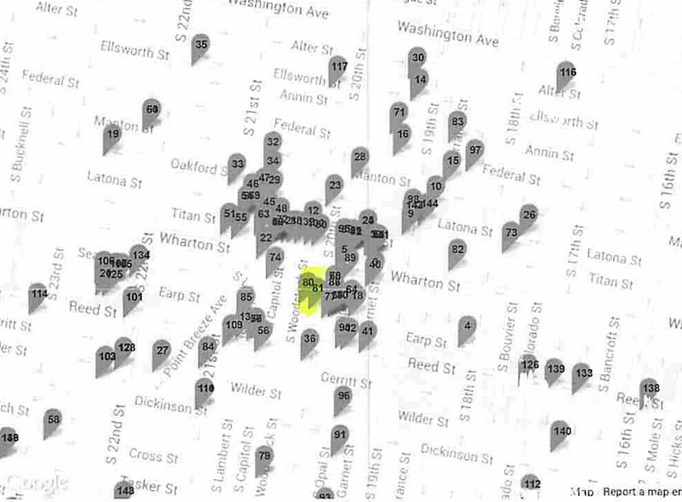
Leave a Reply